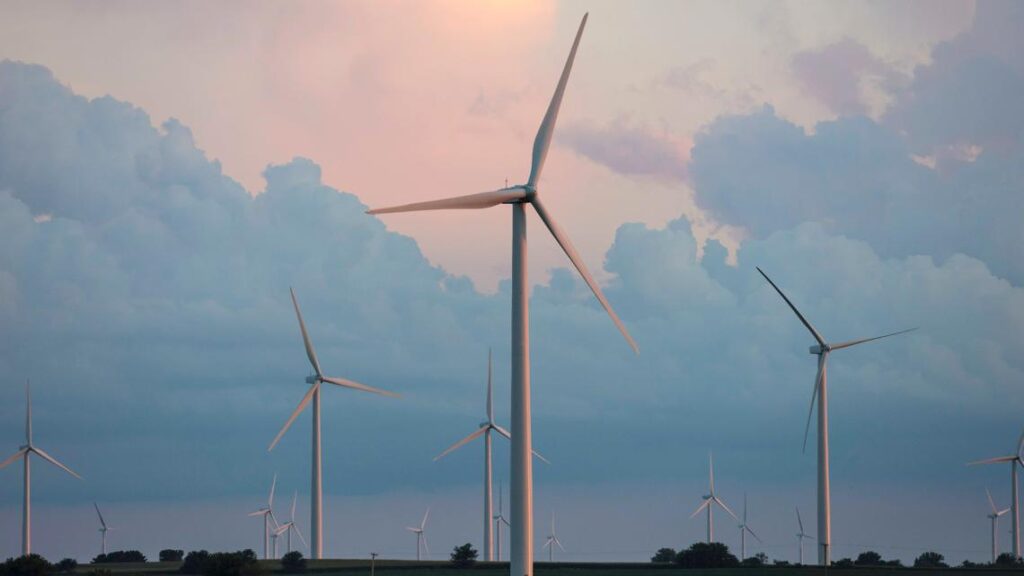
MISSOURI, USA — Missouri’s utility regulators have given the green light to one of the nation’s most ambitious clean energy projects, but the state’s Attorney General Andrew Bailey is challenging their decision.
The “Grain Belt Express,” an over 800-mile electricity transmission line, is set to transport power from wind farms in Kansas to Indiana. Dubbed the “largest transmission line in U.S. history,” the project aims to enhance grid reliability across 29 states and potentially save Missouri residents approximately $18 billion in utility costs, according to Invenergy, the company spearheading the project.
Despite the Missouri Public Service Commission’s approval in 2023, which allows the project to deliver nearly half its power to Missouri, Attorney General Bailey has raised objections. In a legal notice filed on Tuesday, Bailey accused the project of having a “history of lies and false promises” and urged the commission to reconsider its approval. He also demanded transparency regarding the project’s economic claims.
Legal and Political Tensions
Bailey’s opposition to the Grain Belt Express is rooted in concerns over property rights and the project’s impact on local landowners. He criticized the project for misleading regulators and prioritizing out-of-state interests over those of Missourians.
“Grain Belt Express has repeatedly lied to Missourians about the jobs it would create, the benefits it would deliver, and the land it seeks to take,” Bailey stated in an emailed press release. “We will not allow a private corporation to trample property rights and mislead regulators for a bait and switch that serves out-of-state interests instead of Missourians.”
However, according to James Owen, Executive Director of Renew Missouri, Bailey lacks the authority to halt the project. Owen suggested that Bailey’s actions might be aimed at garnering support from agricultural groups that have historically opposed the project. These groups, including the Missouri Farm Bureau, the Missouri Cattlemen’s Association, and the Missouri Soybean Association, have previously attempted to challenge the project in court, albeit unsuccessfully.
Project Scrutiny and Support
The Grain Belt Express has been subject to extensive scrutiny, with multiple reviews by the Public Service Commission and legislative challenges. Owen emphasized that the project has undergone more due process than any other in Missouri’s recent history.
“I’d argue that no other entity in Missouri has had more scrutiny applied to it than the Grain Belt Express,” Owen told 5 On Your Side. “It has been in front of the Public Service Commission three times, the legislature has tried to overturn it, it’s gone to the appellate courts…it has had more due process applied to it than any project I can think of.”
While Bailey’s stance reflects a broader skepticism among Republicans regarding renewable energy, it contrasts with the support the project received during the Trump Administration. The administration included Invenergy’s $1.7 billion investment as part of its “America First agenda.”
Property Rights and Economic Impact
One of Bailey’s primary concerns is the use of eminent domain, with nearly 50 petitions filed against Missouri property owners. However, Invenergy reports that 97% of property owners in Kansas and Missouri have agreed to easement deals, amounting to over $86 million in payments.
Despite Bailey’s objections, Invenergy is proceeding with the project, maintaining that it has been transparent and will cooperate with the Attorney General’s requests.
“We should be building energy infrastructure in America, but the Missouri Attorney General is instead playing politics with U.S. power,” a project spokesperson said. “(Bailey’s) last-ditch and obviously politically driven attempt to delay construction of a critical American power project comes at a time when our country is facing a national energy emergency—declared by the Administration. Electricity demand is rising across the country, and we urgently need transmission infrastructure to deliver power. Projects like Grain Belt Express are the answer to providing all forms of affordable and reliable electricity to U.S. consumers.”
Looking Ahead
The ongoing legal and political battles surrounding the Grain Belt Express highlight the complexities of balancing energy innovation with local interests and regulatory frameworks. As the project moves forward, its impact on Missouri’s energy landscape and economy will be closely watched.
For now, the Grain Belt Express stands as a testament to the challenges and opportunities inherent in transitioning to a cleaner energy future, with Missouri at the heart of this pivotal transformation.







